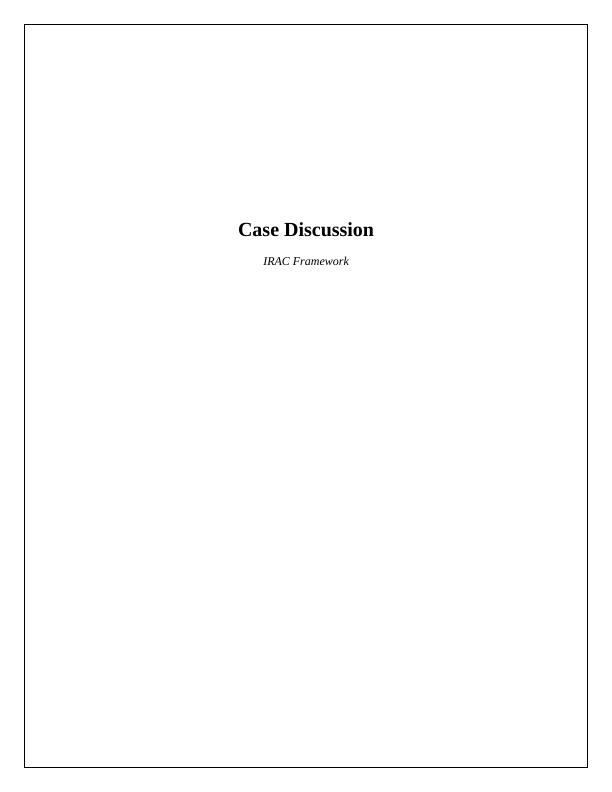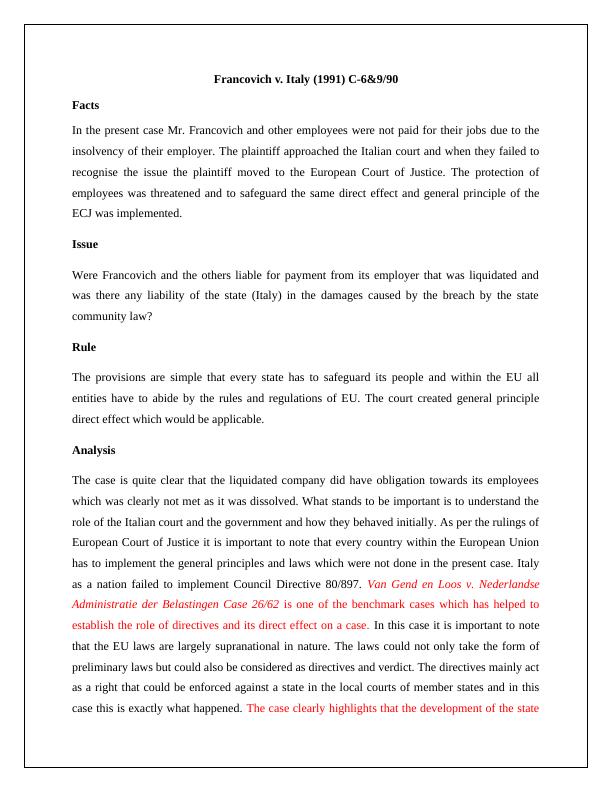Case Discussion: Francovich v. Italy (1991) C-6&9/90
Analyzing the case of Van Gend En Loos v. Nederlandse Administratie Der Belastingen (1963) C-26/62 and determining whether an individual can invoke EEC Art. 12 (Art. 30 TFEU) before a national court or tribunal.
4 Pages634 Words219 Views
Added on 2023-04-21
About This Document
This case discussion analyzes the Francovich v. Italy (1991) C-6&9/90 case, where the issue of state liability for damages caused by the breach of community law is examined. The European Court of Justice ruled in favor of the plaintiffs, highlighting the importance of implementing EU directives and protecting the rights of citizens.
Case Discussion: Francovich v. Italy (1991) C-6&9/90
Analyzing the case of Van Gend En Loos v. Nederlandse Administratie Der Belastingen (1963) C-26/62 and determining whether an individual can invoke EEC Art. 12 (Art. 30 TFEU) before a national court or tribunal.
Added on 2023-04-21
ShareRelated Documents
End of preview
Want to access all the pages? Upload your documents or become a member.
Concept of State Liability
|10
|3591
|78
European Union Law : Assignment
|11
|2565
|112
European Union Law: Direct and Indirect Effect, Liability of State
|8
|2522
|51
The Direct effect is not considered
|11
|2963
|18
Development of Doctrine of Supremacy of EU Law by ECJ
|11
|3772
|287
European Union Law: Assignment
|10
|2738
|72


